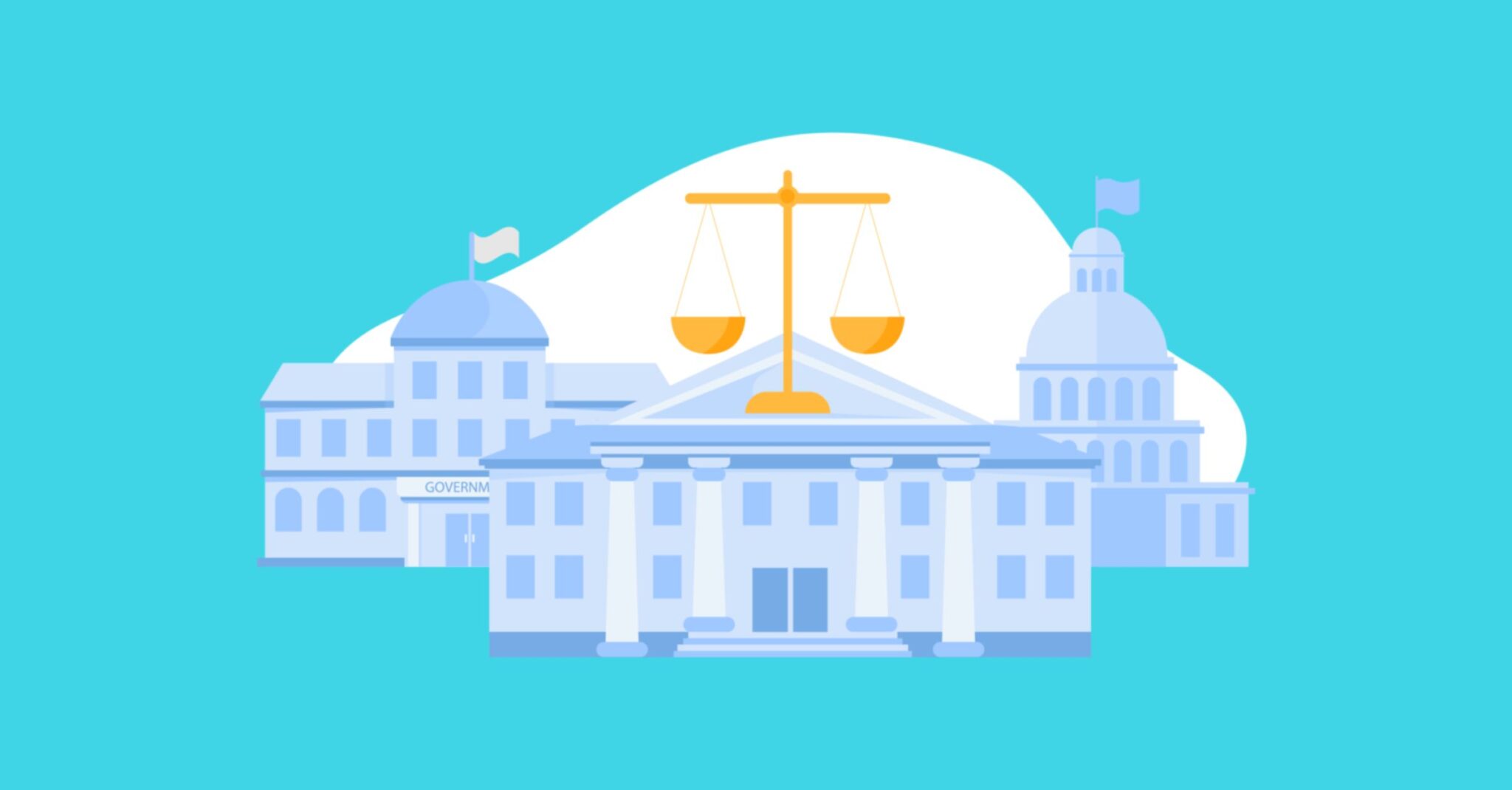The Major Regulatory Agencies for Consumer Finance

A regulatory agency is an organization that creates, oversees, and enforces standards for specific fields of activities. For those in highly regulated industries, such as financial services, regulators are tasked with protecting consumers and ensuring a sound marketplace for all. Regulatory agencies often bring enforcement actions against companies that engage in misleading or deceptive marketing practices. Enforcement actions, more often than not, come with heavy monetary penalties that could damage the brand’s bottom line and reputation.
Some regulators have a long history, and others are more recent, but all carry out enforcement actions regularly and take consumers’ concerns seriously. This dynamic regulatory environment underscores the need for brands to be vigilant in monitoring their marketing and communications for compliance with the laws the regulators impose. Staying updated on regulatory changes is crucial to maintaining compliance and protecting your brand’s reputation.
There are a plethora of regulatory bodies, and each industry has its own set of regulators that govern marketing compliance, but here are a few of the key players to be aware of.
Consumer Financial Protection Bureau (CFPB)
Founded in 2011 under the Dodd-Frank Act, the CFPB has not been afraid to exercise its regulatory power against lenders, banks, credit card issuers, and others. Their main targets are consumer financial companies engaging in UDAAP that could trick consumers into making financial decisions or purchasing products they otherwise would not. The primary mission of the CFPB is to protect consumers from potential harm, such as deceptive practices employed by these companies.
In just 13 years, the CFPB has tackled huge household names in consumer finance and has made a significant impact in the financial services environment. One of the major steps they have taken to ensure customer protection is the consumer complaint database, containing over 5.2 million consumer complaints and key data and trends on consumer sentiment towards various industries. This database helps the CFPB support their supervisory, enforcement, and marketing monitoring activities, pointing them to noncompliant companies.
To learn more about insights into how consumer complaint trends can be use to shape your compliance program to focus most pressing risks to your organization, download the report here.
In October 2023, the CFPB took action against multiple transfer providers, including digital wallet services, in response to consumer complaints regarding misleading claims of ‘no fee’ or ‘free’ services and deceptive representations of transfer times. Another bank was fined $6.2 million in December 2023 for illegally enrolling thousands of customers in overdraft programs and misleading customers about the terms and costs of overdraft coverage.
Additionally, the CFPB often works in tandem with other regulatory agencies. This allows the CFPB to build bigger cases against non-compliant companies and widen their coverage in protecting consumers. For example, in July of 2023, the CFPB and the OCC jointly fined a leading bank $200 million for illegally charging junk fees, withholding credit card rewards, and opening fake accounts.
Federal Trade Commission (FTC)
The FTC’s responsibility is to protect consumers from unfair and deceptive practices and maintain competition to promote a marketplace free from anti-competitive mergers, business practices, and public policy outcomes. As part of its ongoing consumer protection responsibilities, the FTC has charged many companies, including department stores, debt collection companies, and health brands, with UDAAP.
When it comes to marketing compliance, the FTC’s main targets are native advertising campaigns, false endorsements, deceptively worded advertisements, and threatening forms of marketing. Similar to the CFPB, the FTC has an extensive database of consumer complaints, the Consumer Sentinel Network, which collected over 5.4 million complaints in 2023.
More recently, the FTC has shifted a large focus on cracking down on misleading “free” and “instant” offers. In Q1 of 2024, the FTC had three separate enforcement actions just for deceptively marketing products as “free” and “instant,” leading to large fines and restrictive measures and is not slowing down. The Commission also fined a personal finance app provider $18 million for deceptive promises about cash advances, hidden fees, and blocked cancellations. Even a telehealth firm was fined $7 million for deceiving users about its data sharing and security practices, sharing sensitive information with third parties for the purpose of advertising.
Office of the Comptroller of the Currency (OCC)
The OCC is responsible for ensuring that national banks and federal savings associations operate in a safe manner, provide fair access to financial services, treat consumers fairly, and comply with applicable laws and regulations.
The OCC carries out many responsibilities, including:
- Issuing banking rules and regulations
- Conducting visits and examining banks it oversees
- Evaluating applications for new banks or charters
- Imposing corrective measures and enforcement actions
- Protecting consumers through fair access and equal treatment
In the OCC’s efforts to protect consumers, they have given out multiple hefty fines over the years, some as high as $500 million. In the beginning of 2024, the OCC penalized a national bank $65 million for engaging in unsafe practices, including failure to establish effective risk management and internal controls. In 2023, they also dealt out a $15 million fine against another bank for the unfair practices of permitting consumers to regain access to unemployment benefits in a reasonable timeframe following account freezes, plus $200 million for deceptive practices, as mentioned before.
Federal Deposit Insurance Commission (FDIC)
The FDIC was established in 1933 in response to numerous bank failures during the Great Depression. Its primary role is to maintain public confidence and stability in the financial system by insuring deposits at member banks and overseeing the safety and soundness of these institutions.
In addition, the FDIC regulates banks to ensure adherence to consumer protection laws, fair lending practices, and accurate, non-deceptive marketing. It enforces regulations requiring clear and truthful advertising, ensuring banks’ promotional materials do not mislead consumers about their products and services. This includes monitoring disclosures, using appropriate terminology, and avoiding false claims to protect consumers and maintain trust in the banking system.
A consistent focus of the FDIC has been scrutinizing third parties, particularly bank-fintech partnerships. In November 2023, the FDIC took action against a bank and its fintech subsidiary for engaging in unsafe or unsound banking practices and UDAAP violations.
This year has seen a particular emphasis on false or misleading claims of deposit insurance. Effective April 1st, 2024, the FDIC finalized updates to its regulations on the use of official FDIC signs and advertising statements and provided further clarification on its rules regarding false advertising. In regard to this, the FDIC mandated eight companies to cease making such claims, warning of more severe actions if they did not comply, in Q1 of 2024. To address this, the FDIC has released extensive content to educate and provide clearer guidelines for compliance.
State Attorneys General (State Regulators)
Each state has its own State Attorney General (State AG), serving as the top legal officer for the state or territory. They advise and represent the legislature and state agencies to protect citizens. Among their responsibilities, State AGs combat consumer fraud and abuse, ensure a fair and competitive marketplace and defend state laws against court challenges.
Notably, the California Department of Financial Protection and Innovation (DFPI) and the New York Department of Financial Services (NYDFS) act as “mini-CFPBs,” setting standards that many other state regulatory agencies follow.
As State regulators tend to have smaller reach, they often collaborate with each other and other regulatory agencies to enhance their enforcement efforts. In November 2023, the CFPB and 11 State AGs collaborated against a Student Loan Provider for making false promises of job placement, trapping students with “income share,” and abusive debt collection practices. The student loan provider was ordered to cease all operations and provide more than $30 million in relief. Also, this February, the State AG of North Carolina and the Justice Department had a bank pay 13.5 million for lending discrimination by redlining predominantly Black and Hispanic neighborhoods in Charlotte and Winston-Salem, North Carolina.
U.S. Securities and Exchange Commission (SEC)
The SEC is responsible for protecting investors, maintaining fair, orderly, and efficient markets, and facilitating capital formation. It promotes full public disclosure, protects investors against fraudulent and manipulative practices, and monitors corporate takeover actions in the U.S.
The SEC brings hundreds of civil enforcement actions against individuals & companies for violating securities laws, working closely with many other institutions and regulatory agencies to do so. In February 2024, the SEC charged sixteen firms for recordkeeping failures related to maintaining and preserving electronic communications, totaling more than 81 million in penalties. In addition, the September before, they charged a private equity fund over $1.6 million for failures to disclose a conflict of interest and to consider whether its monitoring fee was in the clients’ best interest.
Financial Industry Regulatory Authority (FINRA)
FINRA oversees U.S. broker-dealers to ensure that they operate fairly and honestly. Under the supervision of the SEC, FINRA writes and enforces rules governing the activities of all registered broker-dealer firms and registered brokers in the U.S., examines firms for compliance, fosters market transparency, and educates investors.
In the past, the FINRA has focused attention on market transparency. In November of 2023, FINRA fined a major bank $24 million for treasury spoofing, but the following March, there was a shift in FINRA’s focus. The new hot topic on FINRA’s radar was third-party marketing, particularly with social media. FINRA fined a financial service $850,000 for influencer social media posts containing exaggerated, unwarranted, promissory, and misleading claims. This marked FINRA’s first enforcement action related to social media influencers, signaling more to come.
Department of Education (DOE)
The DOE aims to “promote student achievement and preparation for global competitiveness by fostering educational excellence and ensuring equal access.” The department does so by:
- Establishing policies on federal financial aid for education and distribution, as well as monitoring those funds
- Collecting data on America’s schools and disseminating research
- Focusing national attention on key educational issues
- Prohibiting discrimination and ensuring equal access to education
The DOE has a heavy hand in protecting a certain type of vulnerable consumer—students. In addition to creating policies for public school curricula and safeguarding students’ civil rights, the DOE uses its authority over federal student financial aid to regulate the marketing practices of for-profit colleges and student loan providers.
Throughout 2023, DOE has taken several enforcement actions in response to deceptive practices and ineligible financial aid disbursements. In October 2023, the DOE fined a University $37.7 million for lying to 7,500+ students about the cost of its doctoral programs, falsely advertising a lower cost than what 98% of students paid. The DOE, in August, also took action against five universities for disbursing Federal Student Aid to ineligible students.
Federal Communications Commission (FCC)
The FCC is not around just to regulate telephone and internet networks. The FCC maintains rules and regulations involving the Telephone Consumer Protection Act (TCPA), including policies regarding the Do-Not-Call List, to ensure that consumers only receive calls they consented to.
In addition, the FCC monitors and enforces enforcement actions against marketers who use deceptive tactics to sell communications products such as prepaid calling cards and wireless phone services. In April 2023, the FCC issued a cease-and-desist order to a robo-service caller company to stop serving as a gateway for an illegal student loan assistance robocall campaign, warning that failure to comply may result in mandatory blocking.


